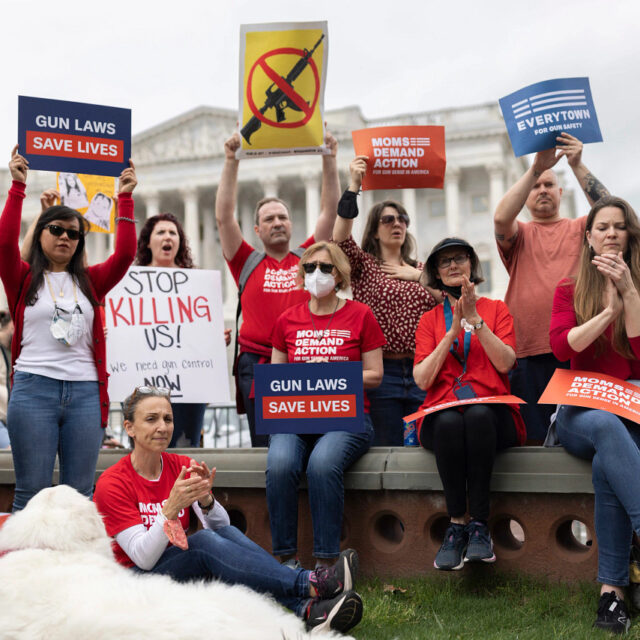H.R. 2708—the Disarm Hate Act—closes a dangerous gap by prohibiting offenders convicted of violent or threatening hate crimes from purchasing and possessing guns.
H.R. 2708 would prohibit firearm possession by anyone convicted of a violent or threatening misdemeanor crime against someone based on their perceived or actual race, religion, gender, sexual orientation, gender identity, or disability.
Under current federal law, some people convicted of hate crimes can still legally buy or possess guns.
- While all felony convictions prohibit firearm possession, convictions for most misdemeanors—including violent or threatening hate crimes—do not.
- In addition, while many states have laws closing this gap, most states do not. As a result, in much of the country a person convicted of a violent hate crime could legally pass a background check and purchase a firearm.
Hate crimes have been on the rise in the U.S. since 2016.
Hate crimes—driven by prejudice against race, color, religion, national origin, sexual orientation, disability, gender or gender identity, or other core parts of a person’s identity—rose 17 percent from 2016 to 2017.
Reported anti-Jewish hate crimes rose by more than 37 percent between 2016 and 2017, and anti-Black hate crimes rose by nearly 16 percent.
The current political climate has emboldened individuals to commit hate crimes and also contributed to the formation of more hate groups across the country. In fact, the number of hate groups in the U.S. increased by 30 percent between 2015 and 2018, with a 7 percent increase in 2018 alone.
Hate is deadly when armed with a gun.
Easy access to firearms gives a single individual fueled by hate the means to shatter many lives and whole communities. Several recent high-profile mass shootings have been motivated by hate, including:
- The August 2019 shooting at a Wal-Mart in El Paso, TX, where a gunman shot and killed 22 people, most of whom were Mexican or Latinx, which officials are still investigating as a hate crime,
- The October 2018 shooting at the Tree of Life Synagogue in Pittsburgh, PA, where a gunman shot and killed 11 members of the Jewish congregation, and
- The June 2016 shooting at Pulse nightclub, Orlando, FL, where a gunman shot and killed 49 people and injured 53, most of whom identified as LGBTQ and Latinx.
Hatred toward women, based on gender, is a common trait among mass shooters. For example, the shooter who killed nine people in Dayton, OH in August 2019 had a history of misogynistic views and threats of violence against women.



